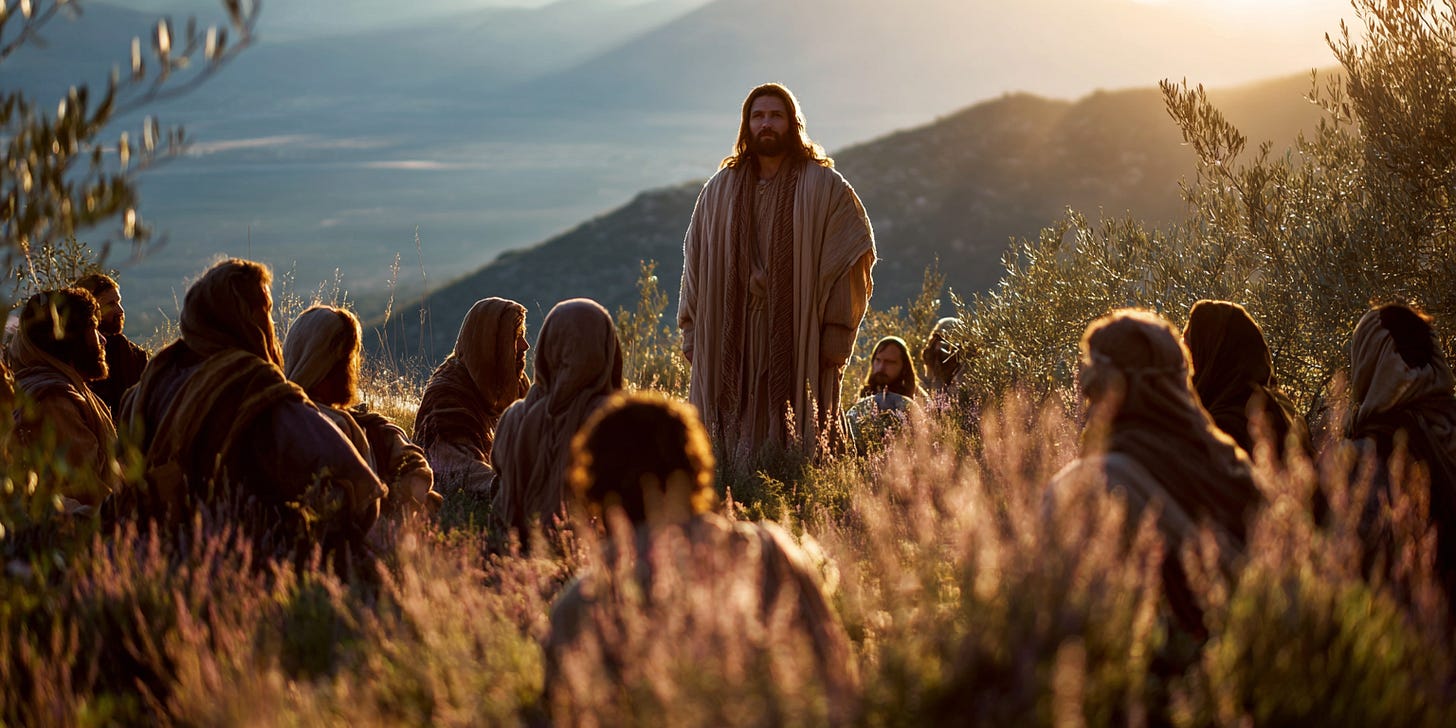Week 27: The Constitution of the Kingdom
Rediscovering Humanity Through the Sermon on the Mount
Theme:
The Sermon on the Mount is not a list of moral ideals—it is a spiritual blueprint for those being restored to God's image. Jesus unveils what it means to live as true sons and daughters, aligned with heaven’s values, rooted in love, and transformed from within.
Objectives:
To understand the Sermon on the Mount as the character of the renewed humanity.
To explore how Jesus fulfills the Law and redefines righteousness.
To examine the transformative power of identity in Christ.
To highlight the contrast between external compliance and internal transformation.
To encourage faithful obedience built on a foundation of relational trust in God.
Scripture Focus:
Introduction
Jesus ascends the mountain not to give new rules, but to invite us back into the reality of divine life. The Sermon on the Mount re-centers the soul, awakening us to what it truly means to be human—image-bearers who reflect the heart of the Father. This teaching is not burdensome; it is the empowering ethic of heaven.
1. The Beatitudes: The Heart of the Kingdom
Jesus declares as blessed those whom the world overlooks: the poor in spirit, the meek, the merciful, and the peacemakers. These are not spiritual goals to attain—they are the manifestation of hearts transformed by divine love. The Beatitudes invert worldly values, showing that heaven draws near to the humble and contrite (Matthew 5:3–12).
2. True Righteousness Comes from Within
Jesus does not abolish the law; He fulfills it by restoring its spiritual intent. He moves from actions to motives—lust to purity, anger to reconciliation. This inward focus reveals that righteousness is not performance, but a reflection of a renewed heart under God’s reign (Matthew 5:17–48).
3. Living as Light in the World
The disciples are declared salt and light—not by effort, but by identity. Their transformed lives are evidence of the Kingdom breaking into darkness. Holiness is not isolation but illumination—bearing witness through mercy, peace, and truth (Matthew 5:13–16).
4. The Lord’s Prayer: Communion over Performance
Prayer is not religious performance—it is relational intimacy. The Lord’s Prayer centers on trust in the Father’s character, the prioritization of His Kingdom, and daily dependence on His provision. Forgiveness flows from knowing we are forgiven (Matthew 6:5–15).
5. The Narrow Path of Faithful Obedience
Jesus closes with warnings about deception—both from others and ourselves. The wise man builds on His words, anchoring his life in truth rather than appearance. This obedience is not legalism but loving alignment with the will of God (Matthew 7:13–27).
Exploring Key Themes
Internal transformation is the mark of the Kingdom: Jesus shifts the focus from behavior to identity. The Beatitudes describe what flows naturally from a heart yielded to God.
True righteousness reflects the heart of the Father: The Law is fulfilled not through rule-keeping, but through relational love that mirrors God’s purity and mercy.
Our lives reveal the Kingdom: As salt and light, our character is not just personal—it has public, transformative impact.
Prayer is rooted in trust, not performance: Jesus invites us into intimacy, not religious obligation. The Father delights in communion with His children.
Obedience builds an unshakeable life: A life grounded in Christ’s words will endure every storm—not because of strength, but because of foundation.
Reflection and Response
In what areas are you relying on outward righteousness instead of inner transformation?
How do the Beatitudes challenge the values you’ve adopted from the world?
What does your prayer life say about your trust in the Father?
Are you building your life on obedience to Jesus’ words or on religious appearances?
Key Takeaways
Jesus redefines blessedness through Kingdom values.
The Law is fulfilled through love and internal change.
Kingdom people radiate God’s character to the world.
Prayer and obedience flow from relationship, not obligation.
Conclusion
The Sermon on the Mount is not a call to try harder—it’s a call to become who we were always meant to be. In Christ, the impossible becomes possible. As we align with the Kingdom, our lives become living sermons—testimonies to the world of what it means to be truly human in God’s image.



